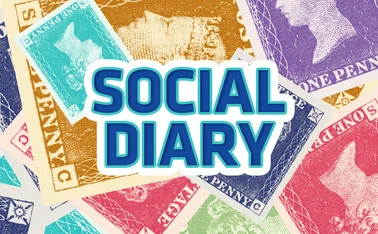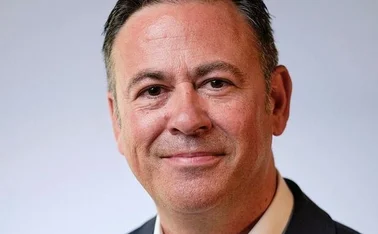
Briefing: Aviva's ill-timed sick pay cuts

Aviva’s plan to cut company sick pay entitlement mid-pandemic is at best a head scratcher.
Make no bones about it, compared to what many members of the UK workforce have access to Aviva offers a generous package of employee support. Be it equal parental leave, 24/7 phone lines for medical support, mental wellbeing support, or an income protection policy, Aviva's people are provided for in several ways.
However, feathers have been ruffled within the business by its plan, implemented during a pandemic, to cut full basic pay sick leave entitlement for staff with two plus years of service. Rather than the current 52 weeks from July this will halve to 26 weeks – in addition to any remaining statutory sick pay entitlement, which as of 2020 was £96.35 per week.
To put this into perspective, many workers could only dream of being covered for 26 weeks of sick leave on full basic pay (see infographic below for some sick pay stats).
And data suggests that a very small proportion of Aviva's workforce would be likely to find themselves in the unfortunate position of being unwell to the extent they could not work for 26 weeks or more.
In 2018, most people (91%) who took a period of sick leave for four weeks or more were either back in work or had left their employer within six months, according to Annual Population Survey figures.
Just 3% of those that took long-term sickness leave did so for more than a year, the APS data shows.
Meanwhile workers in financial services and banking were the least likely to take extended sick leave out of all professions.
Most of the insurer's staff will hope to never need to use a long-term sick pay benefit – but that does not mean they will not miss the security it offers.
Coronavirus impact
The Aviva move comes as the Covid-19 effect threatens longer term health challenges.
Research into the impact of 'Long Covid' is ongoing; reported symptoms from the disease vary but can include heart issues, ‘brain fog’, muscle pain, fatigue, or pins and needles and numbness.
According to a Kings College London study published last October, 2.3% of 4182 Covid sufferers reported they continued to experience symptoms more than 12 weeks after contracting the disease.
“These are conservative estimates, which, because of the strict definitions used, may underestimate the extent of Long Covid,” the study warned.
1.1 million people reported Long Covid symptoms – defined in this case as symptoms persisting more than four weeks after the first suspected coronavirus episode – in the month up to 6 March 2021, according to the Office for National Statistics.
Self-reported Long Covid symptoms were adversely affecting day-to-day activities of 674,000 people in the UK, the ONS said, with 196,000 of these individuals reporting that their ability to undertake their day-to-day activities had been limited a lot.
Of those who had self-reported, 697,000 had or suspected they had the virus at least 12 weeks previously.
The true impact of Long Covid on the UK workforce is likely to remain unclear for some time.
Besides the immediate physical impact, the virus and related measures have contributed to isolation and grief across the population. Warnings continue to pour in that we are facing a mental health crisis.
Perhaps worryingly given this development, in 2018, 27% of all banking and finance professionals who took sickness leave for four weeks or more did so for mental health reasons, the APS data shows.
Business case
There is no guarantee that Covid disruption will not stick around despite vaccine efforts – and businesses would now be sitting ducks if they had not adapted and attempted to keep going as best they can with the day-to-day and longer-term plans.
It could be argued that waiting to make this change is not an option – how long can a company realistically hit pause in the face of disruption brought on by tragedy? Aviva, which has not furloughed staff, has cracked on with other policies and strategic objectives, most notably its campaign to shed its non-core international operations.
And its motivation for the sick pay change may be sound if it means other benefits are opened up and the right support is in place to help people who are ready back into work, and to keep others who are not yet ready afloat. The insurer has pointed to its income protection policy, which could offer financial support for some absences for up to five years. And Aviva told Post it has consulted with staff on the cuts, though an anonymous tip has suggested some employees felt in the dark.
But the decision to alter sick pay entitlement for the hardest hit while reporting a profit, in the middle of a public health crisis that brings with it a lingering uncertainty, will jar with many. A cynic might even brand this a calculated move with the risk in mind.
Just how much the insurance giant will save, besides on the goodwill of its workforce, is unclear. It seems an odd gambit in the midst of an inclusion (incidentally, people with disabilities were five times more likely to take a four week plus spell of sickness leave than other UK workers in 2018, while women on average take more sick leave than men, 2020 ONS data shows), benefits and employee satisfaction gold rush.
In 2020 I applauded Aviva for not furloughing employees, and for encouraging other businesses facing difficult decisions to look at senior pay before targeting more junior colleagues’ pay packets.
In 2021, as the insurer targets staff sick pay mid-pandemic amid reported criticism over its bid to increase remuneration for directors involved in its 2018 preference share fiasco, the outlook is a little peakier.
Only users who have a paid subscription or are part of a corporate subscription are able to print or copy content.
To access these options, along with all other subscription benefits, please contact info@postonline.co.uk or view our subscription options here: https://subscriptions.postonline.co.uk/subscribe
You are currently unable to print this content. Please contact info@postonline.co.uk to find out more.
You are currently unable to copy this content. Please contact info@postonline.co.uk to find out more.
Copyright Infopro Digital Limited. All rights reserved.
As outlined in our terms and conditions, https://www.infopro-digital.com/terms-and-conditions/subscriptions/ (point 2.4), printing is limited to a single copy.
If you would like to purchase additional rights please email info@postonline.co.uk
Copyright Infopro Digital Limited. All rights reserved.
You may share this content using our article tools. As outlined in our terms and conditions, https://www.infopro-digital.com/terms-and-conditions/subscriptions/ (clause 2.4), an Authorised User may only make one copy of the materials for their own personal use. You must also comply with the restrictions in clause 2.5.
If you would like to purchase additional rights please email info@postonline.co.uk







